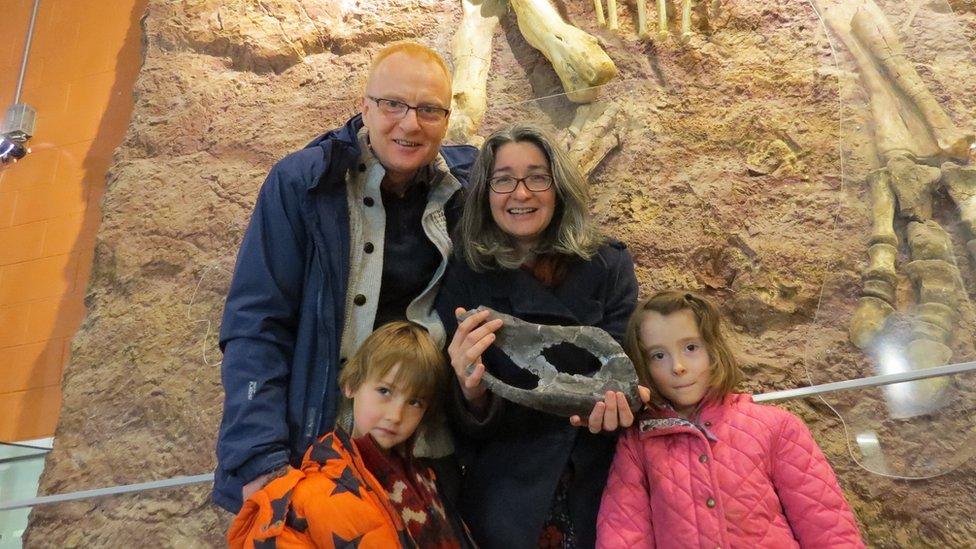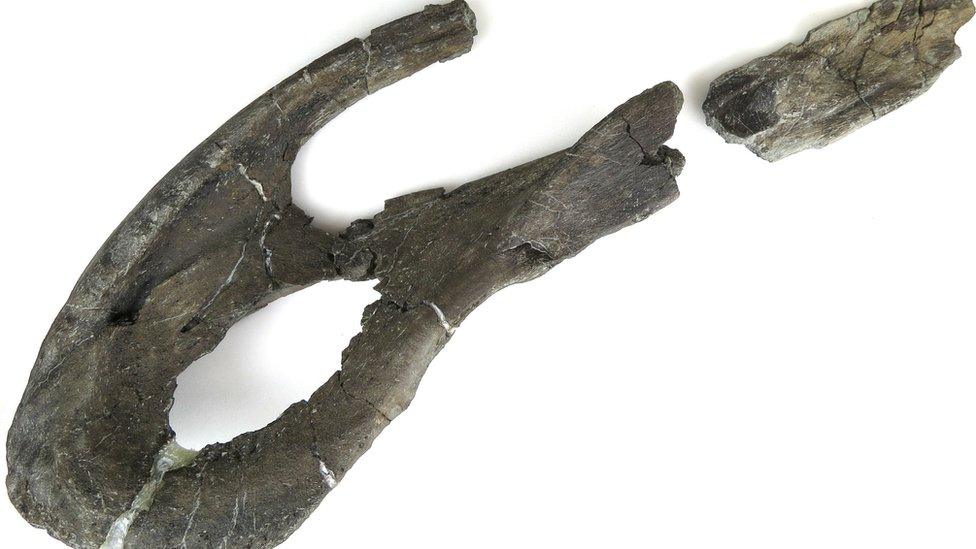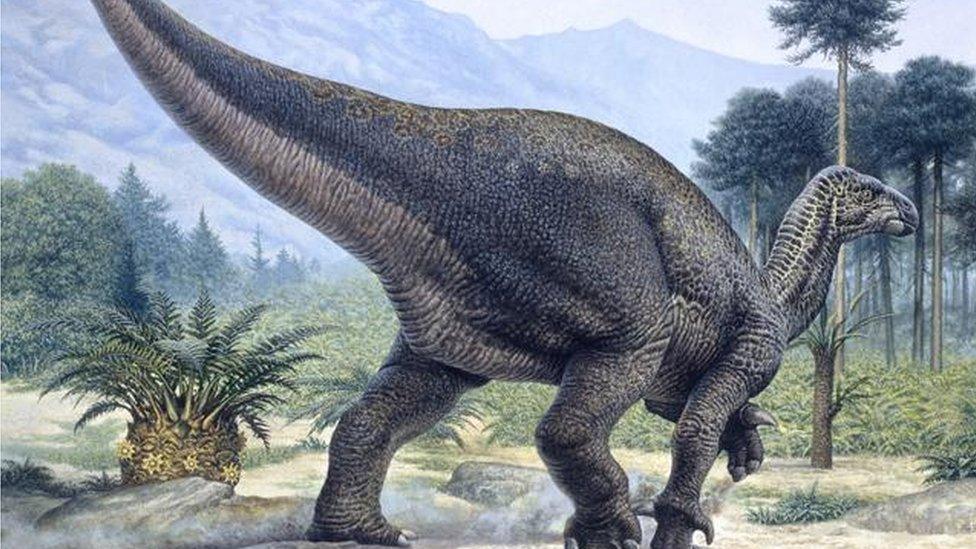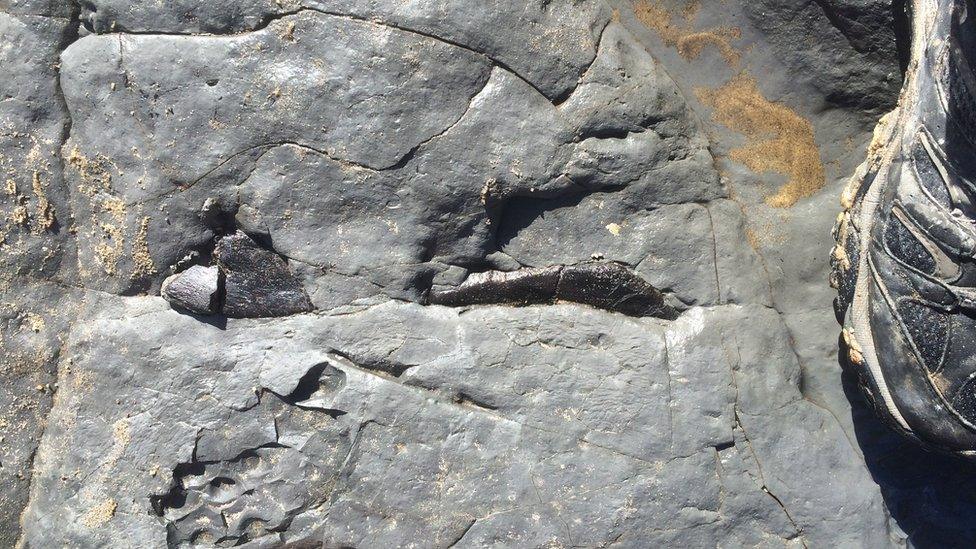Iguanodon skull found by family on Isle of Wight goes on show
- Published

Emily Tabassi-Gill and her family found the skull on a fossil walk
The remains of an "incredibly rare" fossilised iguanodon skull found by a family visiting the Isle of Wight have gone on display.
Emily Tabassi-Gill, from East Sussex, discovered the bones in February during a walk organised by the island's Dinosaur Isle museum.
The fossil is approximately 120 million years old and is the left side of the animal's horse-like skull.
Mrs Tabassi-Gill donated her find to the Sandown-based museum.

Iguanodons are herbivores that grew about 10m long

The dinosaur is well-known for its distinctive spiked thumbs
The mother-of-two said she was "delighted" her fossil would go on display and added: "We will definitely be back to see it."
Dinosaur Isle's community learning assistant, Alex Peaker, said dinosaur skulls are "incredibly rare" because they are fragile and less likely to become fossils than other bones.
He said: "We are really grateful to Emily for her donation.
"Her generosity and that of so many other people is what helps us maintain a fantastic display and helps our understanding of the past progress."
Mr Peaker added that what is most unusual about the fossil is that the remains come from the Cowleaze Chine, made up of layers of clay and sandstone which rarely preserve dinosaur bones.

The fossil, approximately 120 million years old, was discovered protruding from rock